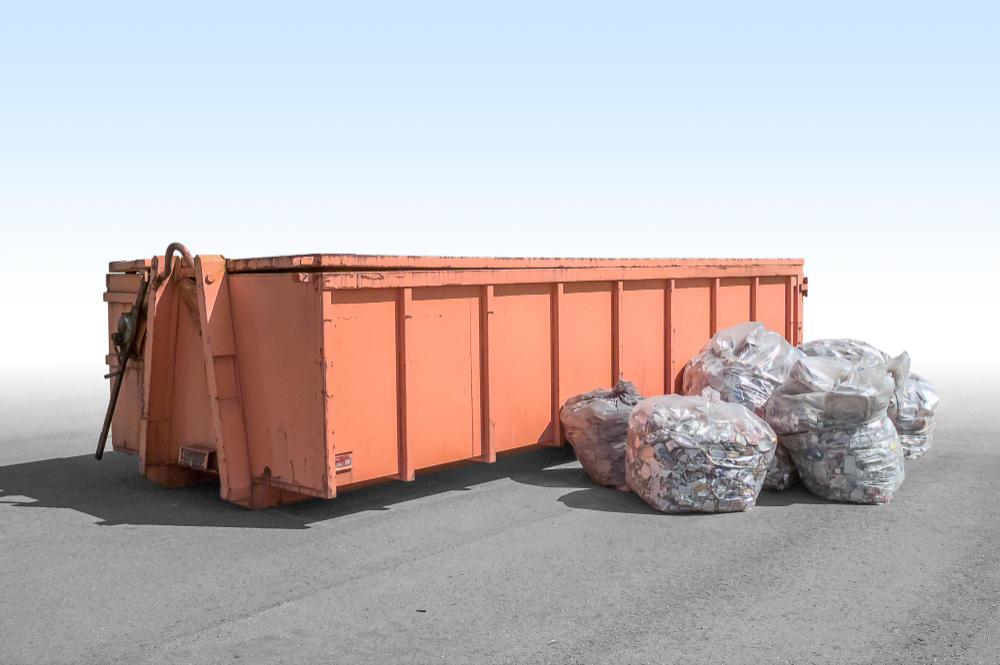Common Dumpster Rental Mistakes & How to Avoid Them

Renting a dumpster seems straightforward. You call, order a container, fill it up, and have it hauled away. But scratch beneath the surface, and you'll find that many customers make costly errors that could have been easily prevented.
Whether you're planning a home renovation, cleaning out an estate, or managing construction debris, understanding these common pitfalls can save you hundreds of dollars and significant headaches. The good news? Most dumpster rental mistakes stem from the same handful of oversights.
This guide walks you through the most frequent errors customers make and provides practical solutions to help you navigate your rental with confidence.
Choosing the Wrong Dumpster Size
The most expensive mistake you can make is ordering the wrong size container. Too small, and you'll need a second rental or costly overage fees. Too large, and you're paying for space you don't need.
Most residential projects require a 20-yard dumpster, which holds roughly 20 cubic yards of debris—equivalent to about 10 pickup truck loads. However, size requirements vary dramatically based on your project type.
For small cleanouts or minor renovations, a 10-yard container often suffices. Major home renovations typically need 30-yard dumpsters, while large construction projects may require 40-yard containers.
How to avoid this mistake: Before calling for a quote, estimate your debris volume. Measure the space your materials will occupy, not just their weight. When in doubt, consult with your rental company—experienced providers can guide you based on your project description.
Ignoring Weight Limits
Container size and weight capacity are two different considerations. A 20-yard dumpster might hold 20 cubic yards of volume, but it typically has a weight limit between 2-4 tons.
Heavy materials like concrete, dirt, or roofing shingles can max out weight limits long before filling the container. Exceeding weight limits results in overage charges that often range from $75-$100 per ton.
How to avoid this mistake: Ask about weight limits upfront. If you're disposing of heavy materials, consider renting a smaller container with higher weight capacity or splitting materials between multiple rentals.
Failing to Check Local Regulations
Many municipalities require permits for roll off container rentals, especially when placed on public property like streets or sidewalks. Permit requirements vary significantly by location, and violations can result in fines.
Some neighborhoods have homeowners' association restrictions on dumpster placement or rental duration. Others have specific rules about noise levels during delivery and pickup times.
How to avoid this mistake: Contact your local permitting office before scheduling delivery. Many rental companies can help obtain permits, but the responsibility typically falls on the customer. Research any HOA restrictions well before your project starts.
Poor Placement Planning
Dumpster placement affects both accessibility and potential property damage. Containers placed on soft ground can sink, creating ruts and damage. Placement under low-hanging branches or power lines can prevent safe pickup.
The delivery truck needs adequate space to maneuver—typically requiring 60 feet of straight-line access and 23 feet of overhead clearance. Tight driveways or narrow streets can make delivery impossible.
How to avoid this mistake: Walk your property before scheduling delivery. Identify the flatest, most accessible spot with overhead clearance. Consider placing plywood under the container to protect driveways or landscaping.
Prohibited Items Violations
Every rental company maintains a list of prohibited items, but customers often overlook these restrictions. Common prohibited materials include hazardous chemicals, electronics, tires, and appliances containing refrigerants.
Mixing prohibited items with regular debris can result in additional fees or refused pickup. In some cases, you might need to sort through the entire container to remove violations.
How to avoid this mistake: Review the prohibited items list carefully during booking. When in doubt, ask specifically about questionable materials. Plan alternative disposal methods for prohibited items before your rental period begins.
Overfilling the Container
Loading debris above the container rim creates safety hazards during transport and violates Department of Transportation regulations. Most companies won't pick up overfilled containers until excess materials are removed.
Overfilling also increases your costs through additional trips or extended rental periods while you sort and redistribute materials.
How to avoid this mistake: Keep materials level with the container rim. Load heavy items first and fill gaps with lighter debris. If you're approaching capacity, stop loading and consider additional rental options.
Not Comparing Quotes Properly
Price shopping seems obvious, but many customers focus solely on the base rental cost while ignoring additional fees. Hidden charges for delivery, pickup, fuel surcharges, and overage fees can significantly increase your final bill.
Some companies advertise low base rates but compensate with higher additional fees. Others include more services in their quoted price, making direct comparisons difficult.
How to avoid this mistake: Request detailed quotes that include all potential fees. Ask about overage charges, extended rental rates, and any additional service fees. Compare total estimated costs, not just base rates.
Scheduling Problems
Dumpster availability fluctuates based on seasonal demand and local construction activity. Waiting until the last minute to book can leave you without options during peak times.
Conversely, scheduling too early can result in the container sitting empty while you're not ready to use it, leading to extended rental fees.
How to avoid this mistake: Book 1-2 weeks in advance for most projects, longer during busy construction seasons. Coordinate delivery timing with your project schedule to maximize the standard rental period.
Making Your Next Rental Successful
Avoiding these common mistakes transforms dumpster rental from a potential headache into a smooth part of your project. The key lies in preparation and clear communication with your rental provider.
Take time to assess your needs accurately, understand local requirements, and compare options thoroughly. A few hours of upfront planning can save you significant time, money, and frustration.
If you're looking for a roll off container rental in Ocala, FL, contact All Waste Dumpster today for free estimates. Their experienced team can help you choose the right size container and navigate local requirements for a successful rental experience.